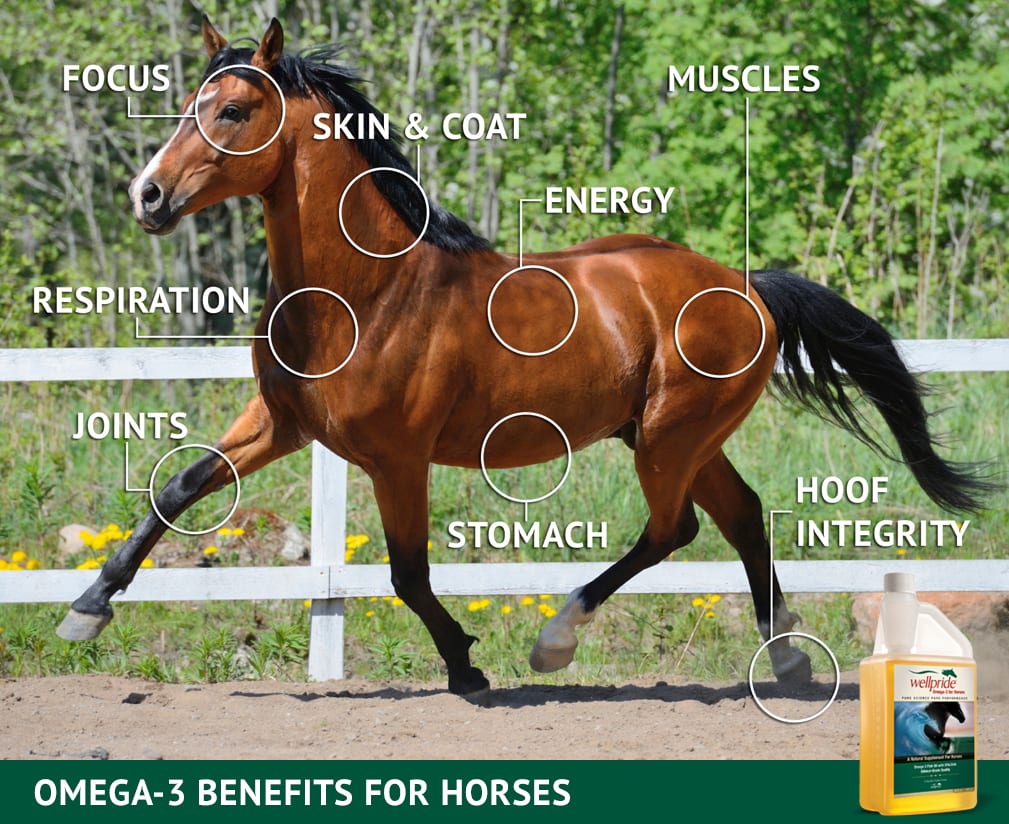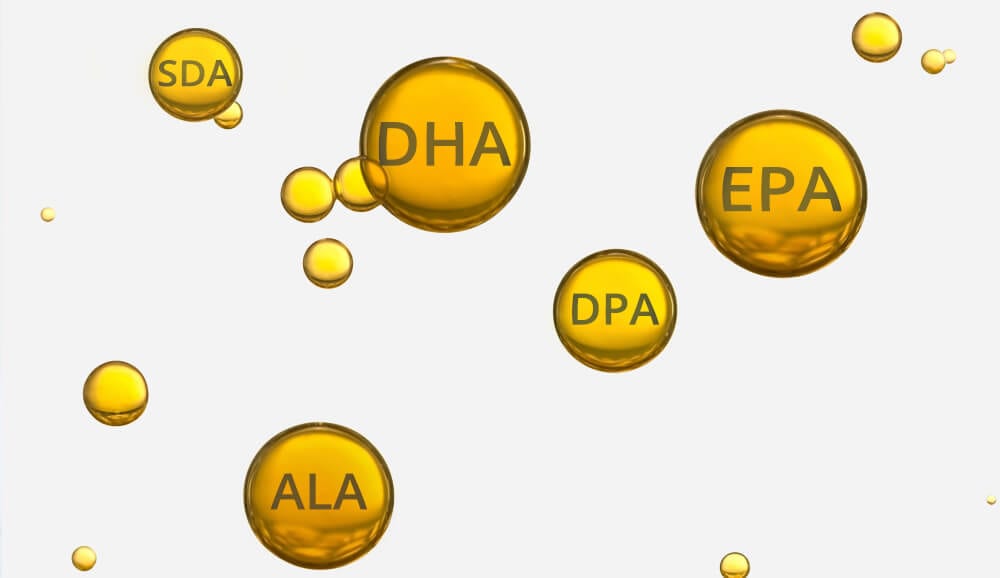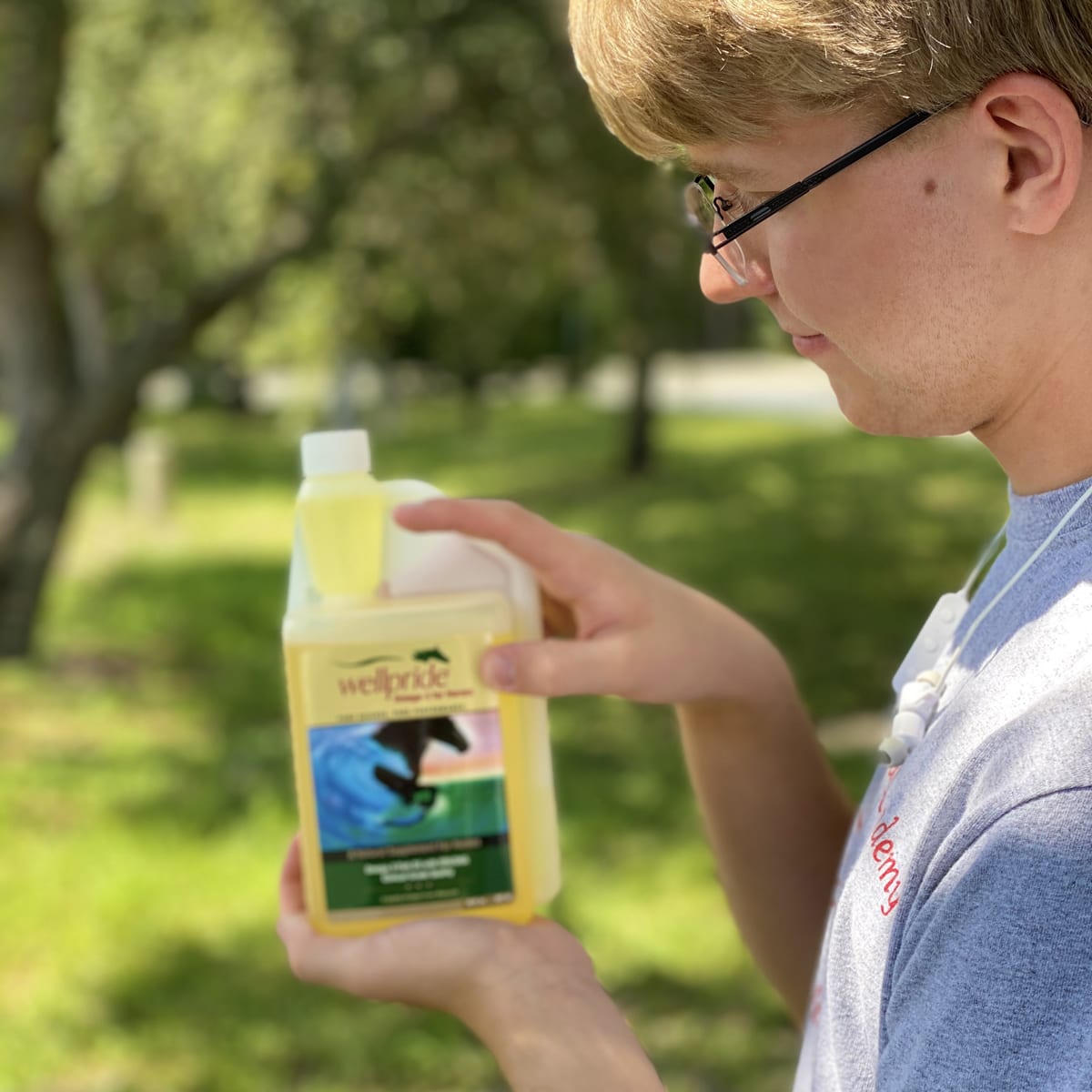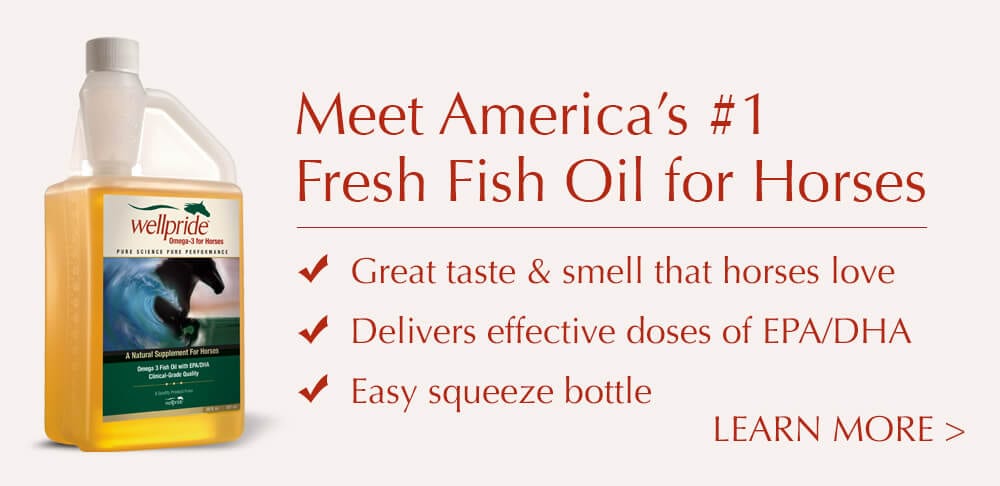How to Find the Best Omega-3 Supplement for Horses
We all agree that protecting the health of our horses is incredibly important. But oftentimes, choosing the right products can be complicated. With numerous omega-3 horse supplements on the market, how do you determine the best quality and most cost effective options?
This article provides the information you need to make a smart decision when purchasing the best source of omega-3 for horses.
Does My Horse Need Omega-3 Supplements?
There are plenty of reasons that a horse owner should consider providing a daily dose of equine omega-3.
Between fighting inflammation, improving behavior, and boosting the microbiome, studies indicate that sufficient omega-3 intake may help improve conditions like:
• EIPH
Because omega-3 fatty acids are important to the healthy functioning of every cell in the body, they have wide-ranging, holistic benefits.
Omega-3 Supplements for Horses Are Not All Made Equally
As physicians and makers of the freshest fish oil for humans, we take omega-3s seriously. And we consistently see that the horse supplement industry encounters many of the same issues we see with the human market: A lack of attention to dose, quality, and freshness.
Examining a product’s nutrition facts, analyzing the ingredients, and even asking for documentation from the producer are all excellent ways to make better judgement calls about a supplement’s effectiveness.
Here are several things to be on the lookout for when choosing an equine omega-3 product:
The Omega-3 Source
Many equine omega-3 supplements contain omega-3s from a variety of sources (e.g. flaxseed, chia seeds, algae, and/or fish oil).
Each of these sources contain different members of the omega-3 fatty acid family. Plant-based omega-3 supplements (like flax and chia seeds) provide only alpha-linolenic acid (ALA). Algae sources generally only provide docosahexaenoic acid (DHA). Fish oil provides eicosapentaenoic acid (EPA), as well as DHA and the rest of the omega-3 family.
The type of omega-3 in a supplement determines a lot about its effectiveness. To date, almost all human and animal studies on the benefits of omega-3 fatty acids have concentrated on the EPA and DHA omega-3s found in fish oil. EPA, in particular, is considered to be the most important omega-3 fatty acid for reducing inflammation, while DHA is considered to be the most important fatty acid for the brain.
There are many different types of omega-3s. EPA and DHA are the best researched. They are also considered to be the most important for achieving benefits.
Studies suggest that – for ALA to be beneficial – the horse must convert ALA into EPA and DHA. The problem? This conversion rate is very poor. In fact, one 2012 study comparing the omega-3 levels of mares given either flaxseed or fish oil found that only the horses given fish oil had plasma levels of EPA and DHA. This suggested that not much ALA gets converted into EPA or DHA with flax-only supplementation.
The take home message is this: If a blended omega-3 supplement contains predominantly flax or other plant-based sources of omega-3s, very little will likely be converted into the far more effective EPA and DHA molecules. That’s especially relevant if you have a horse with significant inflammation issues, like EIPH, equine asthma, or skin problems.
To determine if a product is going to be effective for your horse, look at the nutrition facts to see if it contains EPA and DHA specifically. Just because a supplement contains “omega-3s” does not mean it will provide a significant amount of the two most beneficial fatty acids.
Dosage Is Important
For humans, research consistently shows that it takes at least 2000 mg of EPA/DHA daily to reduce inflammation and improve health conditions. Research also shows that the proper omega-3 dosage for a mammal is – at least, in part – determined by weight.
In spite of the vast size difference between horses and humans, many equine supplements provide less than 1000 mg of EPA/DHA per serving, if any at all. Because the health benefits of EPA/DHA are dose dependent, such low doses generally aren’t capable of providing the touted health benefits.
Wellpride’s Doses Are Effective
This dose-dependency is why we designed our Wellpride® fish oil formula to contain effective doses of omega-3s for horses, based on clinical evidence and the advice of a veterinarian- and researcher-based advisory board. Wellpride delivers 4500 mg of EPA and 3000 mg of DHA per one-ounce serving (that’s 7500 mg of EPA/DHA total).
Our customers and their horses deserve a product that delivers on its promises. Thanks to the high omega-3 doses, our predominantly EPA and DHA formula is not only more beneficial, but it’s also more cost-effective than ALA-centric products.
With any equine omega-3 supplement, remember to check how much EPA and DHA it contains per serving. If your horse is getting an effective omega-3 dose daily, you should ideally be able to observe noticeable improvements in coat, joint, and respiratory health within a minimum of 3 months.
We typically recommend feeding 1 oz of Wellpride as a daily maintenance dose. For horses struggling with severe inflammation issues, however, 2 oz daily may be necessary.
Omega-3s, Omega-6s, & Omega-9s
If you are researching omega-3s, chances are that you’ve run into products that advertise that they contain omega-3s, omega-6s and omega-9s.
While omega-3 fatty acids are typically derived from fish, the same cannot be said for the other two.
Omega-6 fatty acids predominantly come from products such as: corn, canola, safflower, sunflower, and soybean oils. Omega-9s are found in oleic acid and erucic acid, the main components of olive oil and canola oil, respectively.
The Relationship Between Omega-3s and Omega-6s
We know that a healthy omega-3 to omega-6 ratio is necessary to balance the production of pro-inflammatory mediators (omega-6s) and anti-inflammatory mediators (omega-3s).
Unfortunately, omega-6s are typically overrepresented in most horse feed, and this imbalance can lead to a host of health conditions.
Since most horses already consume too many omega-6s, they certainly don’t need additional amounts from a supplement. That’s especially true if you are trying to curb inflammation issues.
What We Know About Omega-9 Fatty Acids and Horses
Over the past decade, there has also been an increased interest in omega-9 fatty acids. Horses can already naturally produce omega-9 from unsaturated fats in their diet, making omega-9 a nonessential fatty acid. Additionally, omega-9s don’t produce the same beneficial, inflammation-reducing molecules that omega-3s do.
As long as your horse receives the proper amount of fat in their diet (as determined by your veterinarian, equine nutritionist, or feed specialist), omega-9 supplementation is generally not necessary.
Remember, when it comes to fatty acids, more is not always better.
Why Wellpride Uses Fresh Fish Oil
Thanks to their plentiful double bonds, omega-3 oils are highly prone to oxidizing — or spoiling – when they come into contact with oxygen. That’s why it’s also important to shop with freshness in mind when purchasing an omega-3 supplement for your horse.
At Wellpride, we use a top quality fish oil that exceeds the freshness standards set for most omega-3 supplements for people. We also use a specialized bottle design that helps protect the oil from oxidation.
The freshness factor explains why Wellpride doesn’t have much of a fishy taste or smell, and why even picky horses enjoy its flavor.
Ultimately, this attention to freshness, quality, and dose translates directly into results. To learn more about how Wellpride has helped horses ranging from Olympic champions to rescues, read our Success Stories.









